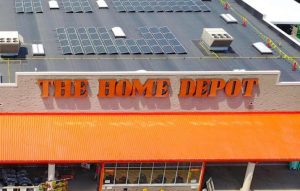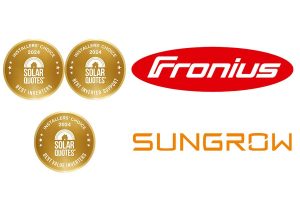Solar Panels and Power for Small Businesses

Running a business involves more than simply offering attractive products or services. In the contemporary commercial landscape, a company’s values and sustainability commitments have become an increasingly critical aspect of its overall image.
One effective way to articulate your organization’s commitment to environmental sustainability is by installing solar panels. However, this decision comes with a variety of considerations beyond the obvious benefits of renewable energy production.
Evaluating Investment Costs: Upfront Expenditures and Long-Term Savings
Investing in solar power technology can be an intimidating endeavor due to the substantial upfront costs. For instance, a small-scale commercial solar panel system costs approximately $2 per watt on average, translating into an estimated total cost of around $200,000 for a full installation across an average sized organization. In certain cases, the additional infrastructure necessary for battery storage can elevate the initial costs to as high as $500,000 for smaller businesses.
Despite these considerable costs, it’s essential to note that there are numerous financing options available to facilitate the transition to solar energy. In the United States, power purchase agreements (PPAs) can significantly alleviate the financial burden. PPAs engage special purpose entities (SPEs) that manage the installation of solar equipment and maintain the energy systems for a period, gradually transferring ownership back to the business. This mechanism helps to mitigate the impact of upfront costs.
It’s crucial to remember that the cost of installing solar panels is not a sunk cost but an investment with an expected return. Factors such as installation scale, local climate, and energy consumption patterns can affect the payback period of photovoltaic solar panels. Thanks to the variety of financing options and governmental incentives, solar installations typically achieve a return on investment within three to five years. With solar cells lasting 25 to 30 years on average, the long-term financial benefits far outweigh the initial investment.
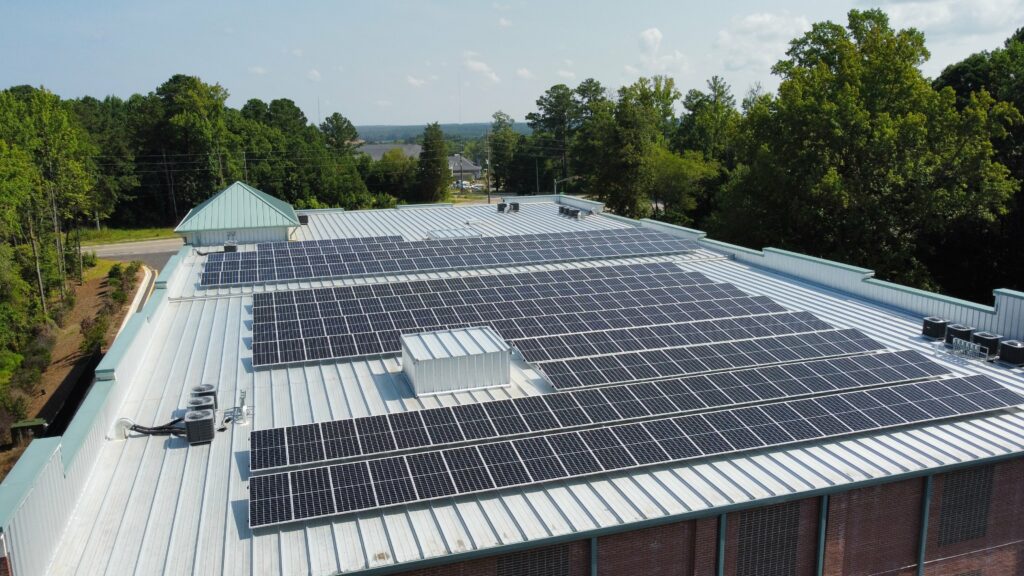
Towards Energy Independence: Reducing Grid Reliance
One of the primary advantages of solar power is the reduction in dependence on the grid, leading to substantial savings in utility costs. Statistics show that installing solar panels can decrease overall energy utility costs by 75% for commercial property owners. This reduction can lower an average monthly energy bill from $1,950 to around $500.
Moreover, the less a business relies on grid power, the less it has to worry about power consumption trends disrupting its operations. Small-scale solar installations can generate power exclusively for on-site use, placing power production “behind the meter.” The switch to solar energy not only brings financial benefits but also reduces demand on the grid, consequently decreasing power generation from non-renewable sources like coal and natural gas.
Solar Power Across the Political Spectrum
Contrary to common misconceptions, the merits of solar power transcend political divides. The potential for independence from fossil fuel-based electricity and advances in renewable technologies appeal to environmentally conscious thinkers. Meanwhile, the prospect of significant reductions in utility bills attracts those with more economically focused viewpoints.
The cost of solar power has dropped by over 60% in the last decade, making the switch to green energy a compelling choice for small businesses. The multifaceted advantages of solar energy can resonate with business owners across the political spectrum, acknowledging the appeal of affordably priced electricity for their operations. Thus, it would be a gross oversimplification to reduce the conversation about solar power to a partisan debate.
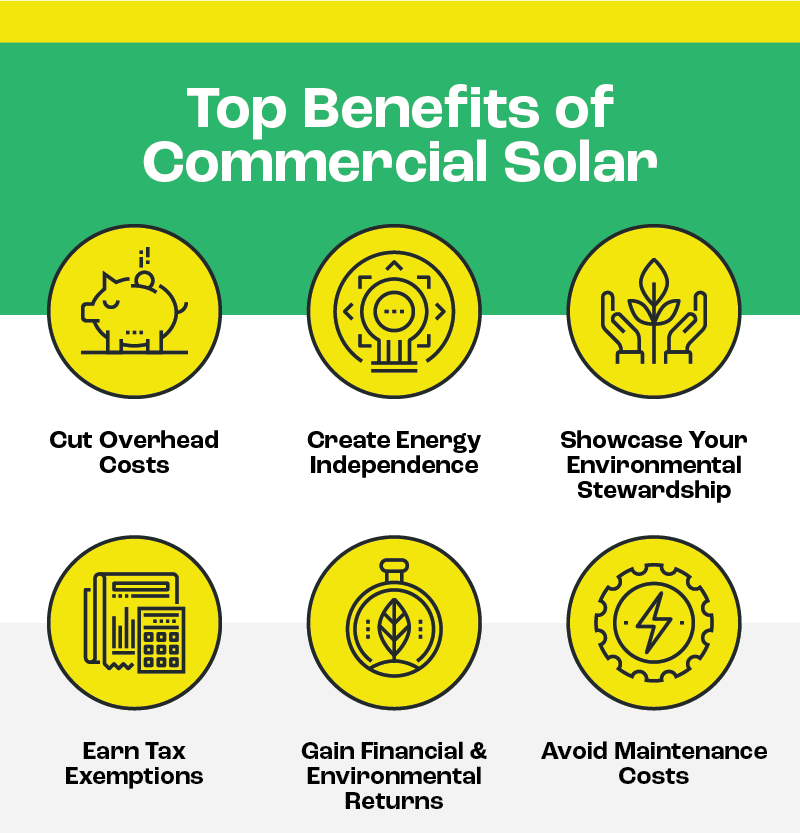
The Impact of Solar Panels on Business Perception
Surprisingly, one of the most significant advantages solar panels can bring to a business is how they shape public perception. The presence of solar panels communicates a company’s commitment to sustainable energy, which can positively influence customer attitudes. Businesses can use signage to highlight their solar installations, attracting and retaining customers who value environmentally responsible practices.
The visibility of solar panels can vary based on the specifics of their installation. However, businesses can overcome visibility issues with creative solutions, like using photos, diagrams, or appealing graphic designs to showcase their solar energy systems. The presence of solar panels at a business can silently convey a commitment to the long-term benefits of green energy, prompting engaging conversations with customers and leading to increased sales and customer retention.
As solar panels become a common sight at everyday businesses, they contribute to a shift in public perception. As people become more accustomed to the presence of solar panels, they may become more comfortable with the concept of investing in them. This normalization can extend to broader contexts, such as utility-scale solar installations.
By incorporating solar panels into your business infrastructure, you’re investing in not only the future of your company, but also our planet. Not only will this decision yield financial returns in a few years, but it will also help to normalize the prevalence of solar panels, potentially encouraging others to follow suit.
Incorporating green energy solutions into your business’s infrastructure is a smart and forward-thinking choice. If you are committed to the future of our planet and the promise of energy cost savings, solar power will certainly be a wise investment.
Help Your Small Business Go Solar Today
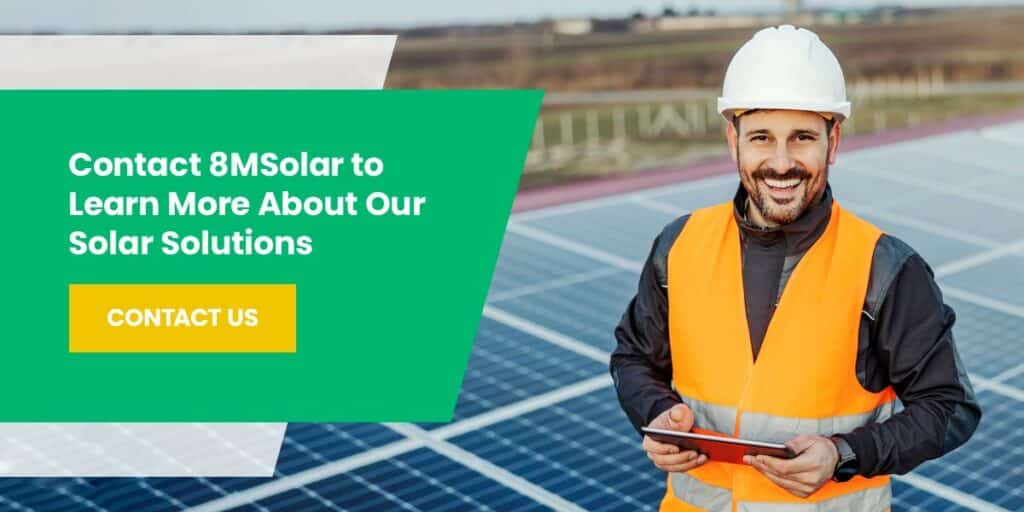
Our team of experts is ready to help your small business learn about solar tax incentives, learn about the impact of solar on the environment, and how it can help your business save money. Contact us today to learn more and get started.


